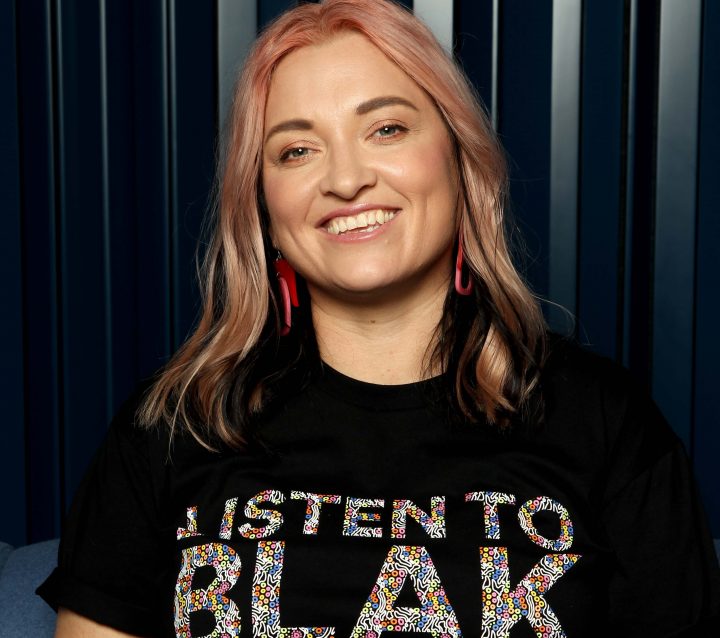Please tell us your story! How did you get to where you are today?
I took a windy road to get back to where I wanted to be but I am so glad I did. My career started out in the classroom as a high school teacher of Drama and English. I then worked in Indigenous education and really loved working with my community more, so I started dreaming of ways to explore that. That is what led to Digi Youth Arts (DYA) – an Indigenous youth arts organisation I founded in 2013. I ran DYA for 10 years, and it will forever be the best thing I ever do. I learnt a lot, made mistakes and grew; and I would not be where I am today without Digi Youth Arts.
In 2018 I made another shift, I left a more stable job to undertake a Doctorate In Creative Industries and took up a role at BIGSOUND as their First Nations Producer – when I left this position in 2021 I started working with Spotify as their Aboriginal and Torres Strait Islander Program Lead.
I founded Blak Social in 2020 and we are an Indigenous arts company working across music, theatre and film. This is a space where I get to do my arts practice as a storyteller and also put on music events for my community.
“I would really love if resources were put into bringing the Indigenous music community (however large a delegation that needs to be) together to yarn – that is what is missing.”
Tell us about your role. What does your day-to-day entail?
Every day varies pending on what my focus is that day. Some days I might be solely doing my music industry work, some days I might be zoned in on my arts practice and some days it is a mix. I can also be at events and out in community yarning. Like a lot of us, I am very often dealing with my Inbox and Slack messages.
I recently wrapped up my latest production Meet Your Maker at Brisbane Festival, I had been doing specific training for that which has been really beneficial for all my other work. Looking after yourself works!
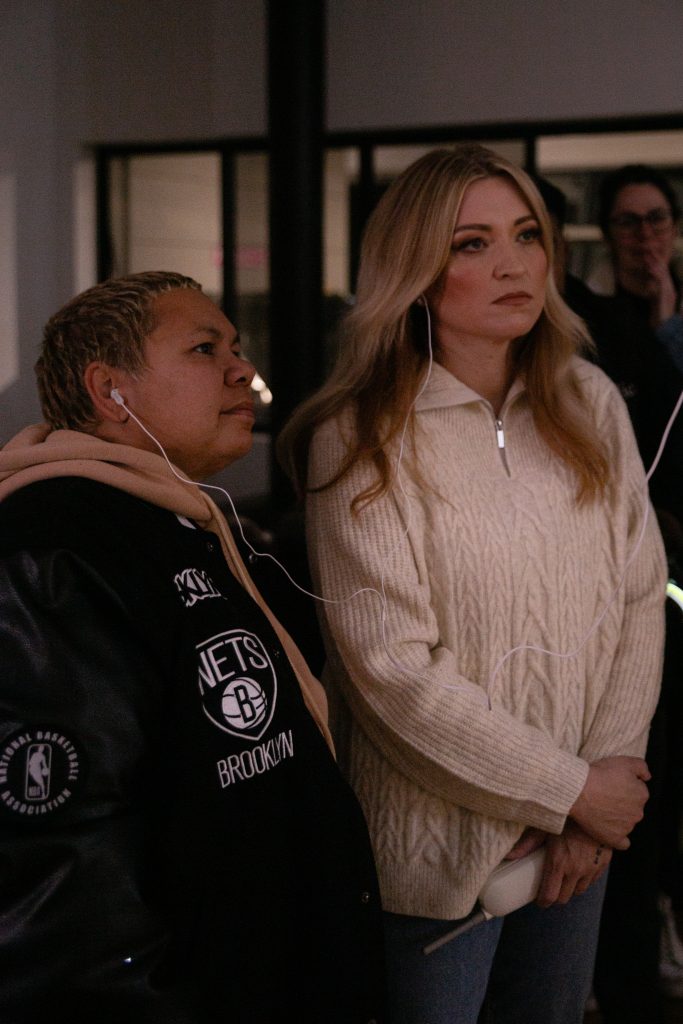
Why did you want to get into the music industry?
I love music made by Indigenous artists, and think they make the best music on this continent.
How did you get your start in the industry? Any advice for people wanting to work in your field?
My first role in the music industry was as the First Nations Producer of BIGSOUND from 2018 to 2021. Part of me wants to tell anyone wanting to work in my field to RUN but I will also say, don’t listen to every bit of advice you get. Trust your intuition and what your community tells you the most. When I first started there were so many people (even those who hired me) saying “but she doesn’t know music”. But I used my many transferable skills and got to work – and not knowing music actually benefited my roles in this space because I was able to see how far behind the music industry truly was in engagement with Indigenous people.
“We are currently hearing a lot about the crisis the music industry is facing – and whilst that is very true and my heart goes out to all artists and industry professional impacted by this, it is important to remember that the groups that have been deliberately excluded by the music industry have been in crisis for a very long time – and have been largely ignored.”
Let’s talk about the highs vs the lows of your career. What is your greatest achievement? And are there any moments you would like to share that you learnt greatly from?
Any moment where space and resources have been given to Indigenous artists forms parts of my greatest achievements. That is what this work is all about. I learn from every event, strategy or story that I tell.
The lows are dealing with racism within the music industry – and I have privileges so I don’t experience this as much as other mob do. But it is there, overt and also hidden in gatekeeper speak. But I know the revolution doesn’t lie within the music industry so this doesn’t get to me as much as it could.
What is the best piece of life advice you’ve ever received?
“They are going to do what they are going to do, and we are going to do what we are going to do” – in reference to colonisers. It reminds me not to get caught up in getting upset about any let downs in the colonial music industry – as it isn’t meant for me anyway.
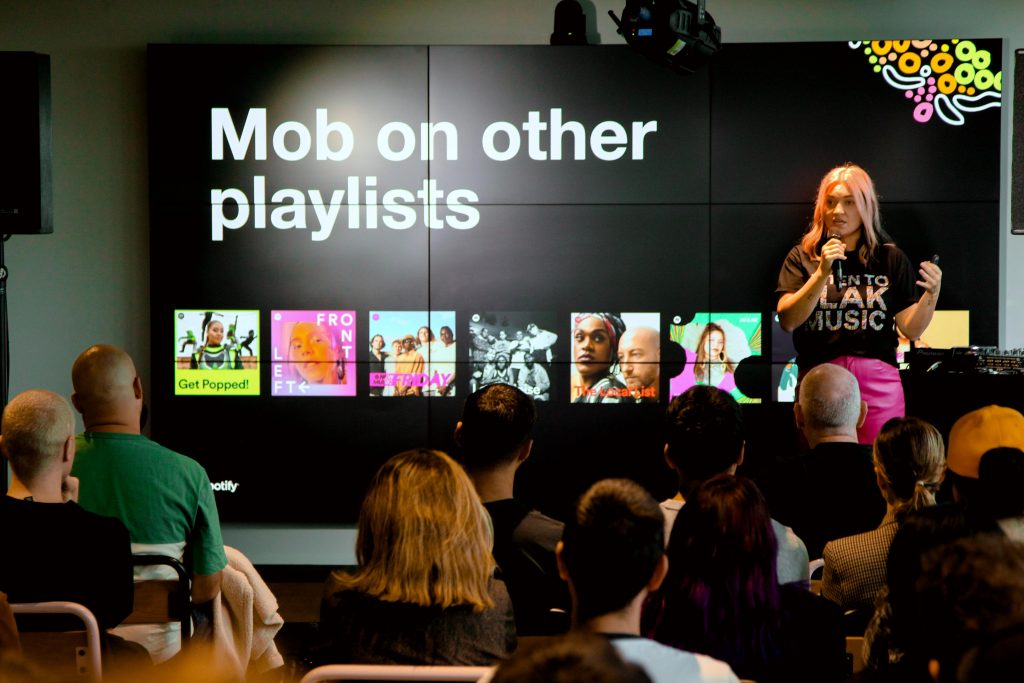
What was it like growing up & experiencing the industry outside looking in? Now that you’re in it, what has your experience been like?
I am 2 years sober and I am so grateful I did not start working in the industry until much later in life. I would not have handled certain situations with my disposition when I was younger. When I was younger I did not really think about the music industry, and I certainly did not think that they should have been doing more to keep me (and other women) at events safer – and I really should have.
What issues do you think the current Australian music industry faces? Specifically in your realm of work.
The Australian music industry goes by that name and therefore is not truly able to be representative of Indigenous music because of how entwined with the colony it is. The music industry has always and continues to push a monocultural colonial system that is designed to exclude certain groups of people over others. Gatekeepers in the music industry still very much exist, they just now have words from their diversity and inclusion handbooks that helps them get away with it.
We are currently hearing a lot about the crisis the music industry is facing – and whilst that is very true and my heart goes out to all artists and industry professional impacted by this, it is important to remember that the groups that have been deliberately excluded by the music industry have been in crisis for a very long time – and have been largely ignored.
“The colonies really took something so beautiful (music) that everyone should actively engage with regularly and capitalised it.”
Do you think the Australian Music Industry is where it needs to be in regards to diversity? If yes or no, what would you like to see?
I would like to see the music industry abolished. There have been other systems of music on these lands for thousands of years that we can look to, and recreate ways to look after one another better.
What does true allyship look like to you?
Being an accomplice. And getting in there and doing the actual work.
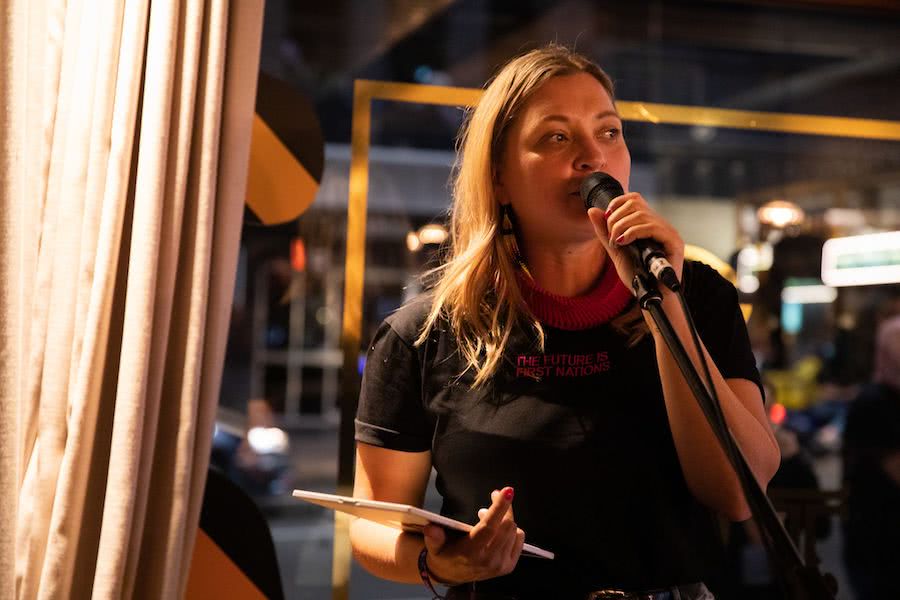
Who are your top 3 artists to watch?
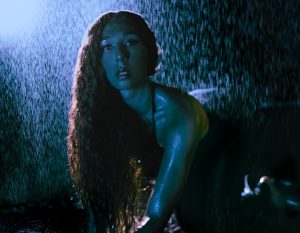
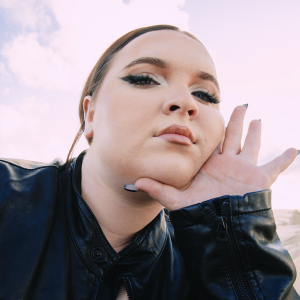
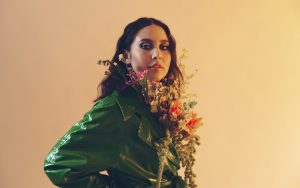
Pt 1: Tokenism, Colourism, Discrimination & Representation are extremely important issues that are lightly discussed in the music industry, particularly in panels. As an Indigenous artist, have you seen positives that have come from those discussions?
There has been change, and those conversations may have contributed to that, absolutely. But we keep having the conversations, over and over again. If the talk isn’t backed with the walk – it is just continuing the status quo of the colony.
Pt 2: Do they delve into enough depth? Is there anything missing from the conversation?
I would really love if resources were put into bringing the Indigenous music community (however large a delegation that needs to be) together to yarn – that is what is missing. We do this when we come to events (And I have done this as well) but it is always inside these very fast paced capitalist nature of the music industry. Give us time and space to rest and yarn together, and dream what we need into existence.
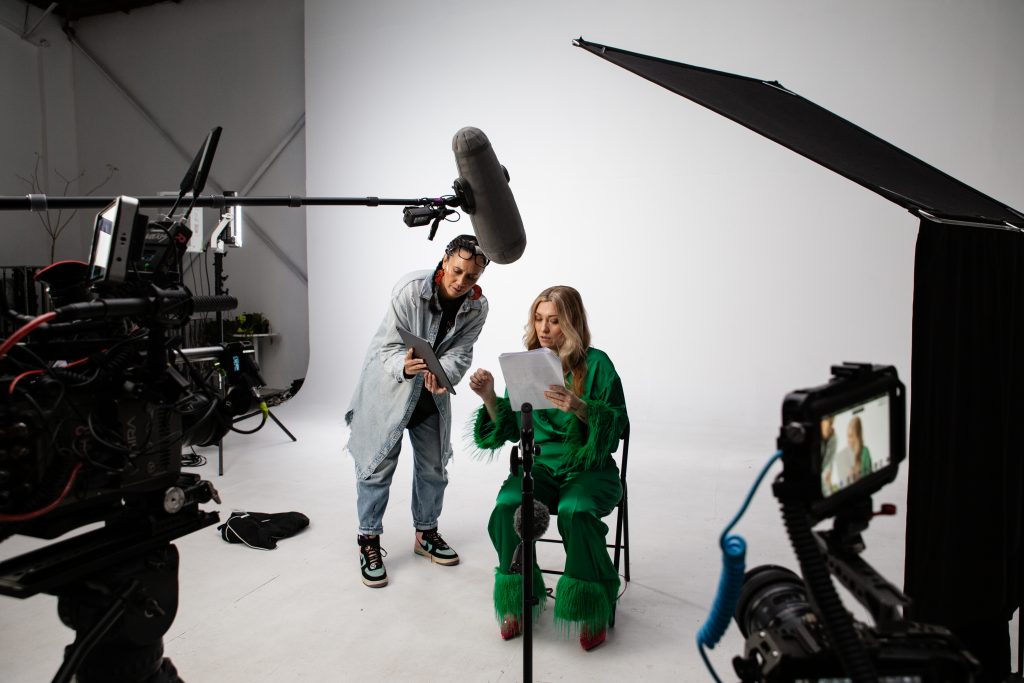
What is your big picture career goal?
Tell stories by any means necessary.
What does music mean to you?
I have a new relationship with music, as mentioned earlier I recently performed in a solo show called Meet Your Maker at Brisbane Festival. It is about an Indigenous pop artist who goes missing moments before the biggest performance of her career to go and Meet Your Maker. This work is very much about truth-telling – about myself and the music industry – sharing what it has been like working in this space. To do this work I had to gain some new skills, like singing and recording music. And whilst I have no desire to pursue music (unless it is ever connected to acting), I really do love the relationship I now have with this practice. Singing and tinkering on the keyboard has given me health benefits that impact my day to day life. The colonies really took something so beautiful (music) that everyone should actively engage with regularly and capitalised it.
“I love music made by Indigenous artists, and think they make the best music on this continent.”
What would you tell your younger self if you could tell them anything?
You will get to do everything you dreamed of doing, just not the way you imagined. I recently presented the first season of a solo theatre work (that has about 20 actors on screen) and that is all I ever dreamed of doing. I never grew out of singing into a hairbrush in your bedroom phase so this theatre show is just a giant extension of that.
What’s your go to karaoke song?
I Believe in a Thing Called Love by The Darkness
